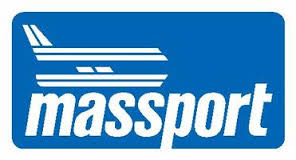The Bedford Board of Health this week unanimously approved what it called an “enhanced health-related communication framework.”
Expressed as a board goal, the framework is intended to “increase opportunities to talk with and listen to the community,” as well as “expand communication channels,” “further acknowledge and address social determinants of health,” and “innovate and collaborate.”
The language features strategies to achieve the goal, such as “collect community input through past health surveys” and “design a holistic health survey for Bedford;” and implement a feedback tool concerning health topics on the departmental website.
“If we can enhance the way we communicate, ultimately residents and businesses can lead healthier lives,” observed member Susan Schwartz.
Longtime member Bea Brunkhorst said, “This all goes to the idea of being ready for the next pandemic, and just for health in general so we can do our role better.”
She said the framework includes efforts to discover “how people are getting their information.” Surveys should highlight “topics that are important to people,” but should not repeat what has been sampled before.
Board member Ann Kiessling’s year-long efforts to sponsor a townwide survey gauging response to the COVID-19 pandemic continued to encounter resistance from the rest of the panel. Her formal motion elicited no support.
“If we don’t do a review, we will miss the opportunity to understand the problems everybody faced and what would be a useful way to move forward,” Kiessling said.
Her board colleague Susan Schwartz repeated the familiar response. “I still don’t think this is the mechanism,” she said. “I would prefer to look at what we’ve already done in our internal review and use that to inform the state and other entities.” She added that a “holistic” survey, transcending the pandemic, might also be valuable.
Member Anita Raj said she met with Kiessling to discuss the idea, and now “I do think there is value in trying to understand perhaps more of the lessons learned.” But she added that for now, “I’m not ready to sign off on this template, mostly because of statements where we took recommendations and turned them into mandates.
“I think that’s assuming that everything was negative,” she explained. “Maybe we should say we are trying to look for additional lessons learned.”
Kiessling proposed several survey questions, some of which seek a scaled response on various aspects. There were five parts to the question, “Did you agree/disagree with the following Bedford mandates?” Listed were social distancing, mandatory face covering, classroom quarantine practices, school closures, and a specific two-week high-school closing.
Other questions gauge the impact of masks and quarantines on businesses and organizations; propose formation of a Covid advisory group; and ask, “How satisfied were you with Bedford’s overall response?” answered on a scale of five.
“I agree with your point about the importance of feedback,” Chair Maureen Richichi told Kiessling. “I don’t think this is the mechanism. The best way is for us to tell the Department of Public Health how their guidance or non-guidance affected our decisions.” For example, she said, would local vaccination sites have been preferable to the large regional centers?
Richichi said a community survey would not provide useful information to help the board prepare for another pandemic. “Our internal review gave us 10 action items that will give us a good start in preparing better. We’re not responsible for decisions by the schools, business closures and challenges, or other town departments’ decisions.”
Residents’ feelings about health-related rulings on things such as face covering and distancing don’t matter, Richichi continued. “If this board considers that masks are urgent, whether its favorable or not might not enter in our decision making. We know there were favorable and unfavorable responses in anything we recommended. It’s not our job to win a popularity contest. Our job is to help people understand why they need to do it.
“We need to know if things we did were issues for residents. A plan going forward needs data,” Kiessling responded, asking what harm there is in putting out a survey.
Raj said, “In building a survey, you want to figure out what you are going to do with the information, who that audience is. Then you make the questions.” She said she is willing to collaborate with Kiessling on this approach. But Richichi said the issue is more about the concept of a full community survey than specific questions.
Some of the questions could be included in an overall communication survey, Brunkhorst said. Richichi agreed, citing questions on sources of information about COVID-19 and a general question about how the Board of Health could have helped better during the pandemic.





























